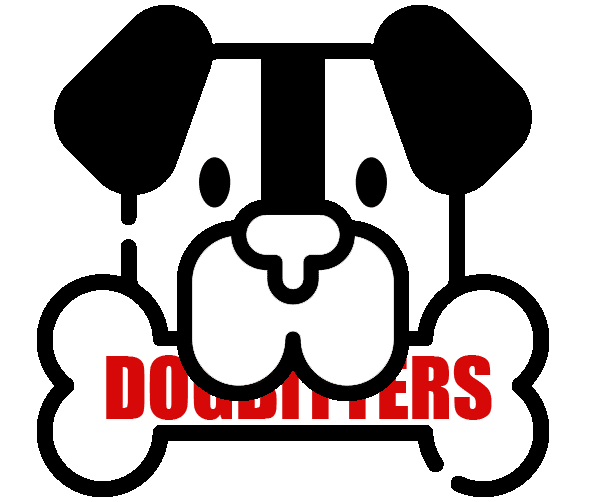The dog’s diet during the recovery period after surgery must be carefully chosen. When a dog has surgery, proper nutrition is essential to his recovery. A balanced diet well adapted to the specific needs of the dog during this period can help reduce inflammation, pain and healing time.
In the first few days after surgery, the dog can often be anxious and sore, which can make feeding him difficult. It is important to offer fresh and clean water at all times to avoid dehydration, but also to increase fluid intake by offering meat or vegetable soups.
While it is important to give your dog a balanced diet, you need to make sure that the portions are small and frequent. The dog should be fed small portions at regular intervals throughout the day to help digest food and prevent nausea and vomiting.
CONTENT:
- What is the dog’s diet during the recovery period?
- Natural foods that can help a dog recover faster in the post-operative period
- How many meals should a dog’s diet during the recovery period have?
- Final tips
What is the dog’s diet during the recovery period?
After surgery, dogs should avoid certain foods to ensure a quick and uncomplicated recovery. In general, you should avoid any foods that may be difficult to digest, may irritate the gastrointestinal tract, or may interfere with prescribed medications.
Here is a list of foods and ingredients you should avoid during your dog’s surgery recovery period:
- Fatty and fried foods: Fatty and fried foods can be difficult to digest and can cause diarrhea and vomiting, which can make recovery difficult.
- Dairy products: Dairy products such as cheese, milk and yogurt can be difficult to digest and can cause diarrhea and vomiting.
- Spicy foods: Spicy foods can irritate the stomach and gastrointestinal tract and worsen postoperative pain.
- Bones and raw meat: Bones and raw meat can cause inflammation and infection in the oral cavity and gastrointestinal tract.
- High-fiber foods: High-fiber foods such as beans, broccoli, cabbage, and peas can cause flatulence and bloating, which can worsen postoperative pain.
- Sweet foods and pastries: Sweet foods and pastries can cause blood sugar levels to rise and worsen post-surgery inflammation and pain.
It’s important to talk to your dog’s vet to get a detailed list of foods and ingredients to avoid during the recovery period. Your veterinarian may also recommend a special diet for your dog, depending on the type of surgery and the dog’s overall health.
Natural foods that can help a dog recover faster in the post-operative period
It is important to provide your dog with an adequate diet to aid in a quick and uncomplicated recovery. There are certain foods that can help your dog recover faster and more effectively after surgery. These foods include:
- Lean meat: Lean meat, such as cooked chicken or cooked turkey, is an excellent source of easily digestible protein, which is essential for rebuilding your dog’s tissues and muscles.
- Brown Rice: Brown rice is a good source of complex carbohydrates that provide energy and are easy to digest. Brown rice is also rich in fiber, vitamins and minerals, which help maintain the health of the dog’s digestive system.
- Cooked vegetables: Cooked vegetables such as carrots and squash are rich in nutrients and fiber and are easy to digest. These vegetables are also a good source of antioxidants, which help fight inflammation and oxidative stress.
- Hard-boiled eggs: Hard-boiled eggs are a good source of easily digestible protein and essential nutrients such as vitamin D and iron. They can help rebuild tissue and muscle, as well as maintain the health of your dog’s skin and coat.
- Boiled or steamed fish: Boiled or steamed fish is an excellent source of easily digestible protein and omega-3 fatty acids, which help reduce inflammation and pain during the recovery period. Fish is also rich in essential nutrients, such as vitamin D and selenium. This can help keep your dog’s immune system healthy.
- Bone Broth: Bone broth is an excellent source of nutrients and collagen, which helps rebuild tissues and bones. It can also provide the dog with the necessary hydration to prevent dehydration during the recovery period.
How many meals should a dog’s diet during the recovery period have?
The number of meals per day for a dog during the recovery period may vary depending on the age, weight, size and general health of the dog, as well as the recommendations of the veterinarian who performed the surgery. In general, dogs can be fed 2-3 meals a day during the recovery period, depending on their individual preferences and needs.
It is important to consult with the veterinarian who performed the surgery to obtain a personalized recommendation for your dog. Generally, your vet will be able to advise you on the amount and frequency of feeding based on your dog’s health and individual needs. Your vet may also suggest special foods or nutritional supplements to help your dog recover from surgery.
You must avoid fatty or spicy foods, foods with added salt or sugar, processed foods, and foods with additives or preservatives. These can be difficult to digest and can worsen the dog’s health during the recovery period.
In addition to diet, it is important to provide your dog with an adequate amount of fresh, clean water to prevent dehydration and help eliminate toxins from the body. It is also important to follow your veterinarian’s recommendations regarding physical activity and rest for your dog during the recovery period.
Final tips
Finally, if your dog has undergone surgery, it’s important to consult with your veterinarian to get specific recommendations regarding your dog’s diet and care during the recovery period. Be sure to follow your veterinarian’s recommendations regarding feeding frequency, types of food, and amount of water.
By providing a healthy, balanced diet and proper care, you can help your dog recover faster and easier after surgery.
Here are some tips that will help you in the recovery process of your furry friend:
- Make sure your dog has a comfortable and quiet place to rest and recover.
- Follow the medication schedule prescribed by your veterinarian and remember to consider possible side effects.
- Monitor your dog’s health carefully and notify your veterinarian immediately if you notice any unusual symptoms.
- Feed your dog small amounts of food several times a day instead of one big meal to help digest it easier and avoid indigestion.
- Make sure your food is rich in protein and essential nutrients such as vitamins and minerals.
- Avoid fatty, spicy, processed foods and those with added salt or sugar.
- Make sure your dog has constant access to fresh, clean water.
- Limit exercise and vigorous activity until your veterinarian advises otherwise.
- Be sure to care for the wound and change bandages as directed by your veterinarian.
- Keep good communication with your vet and keep them informed of any changes in your dog’s health.

